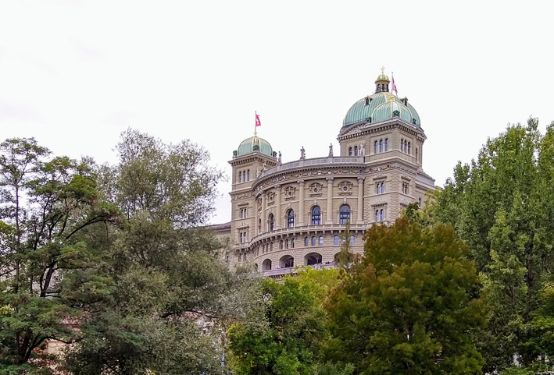84 cultural associations agree
The Federal Council presented the Covid-19 Act on June 19. With the joint consultation response of July 10, the cultural sector supports the Federal Council's draft law. A survey is being conducted to determine the financial needs of the cultural sector.

On 10 July, the Culture Taskforce, which was founded in March 2020, submitted its position on the urgent Covid-19 Act on 18 pages on behalf of 84 cultural organizations. The text of the consultation response is available on the Website of the Culture Taskforce to read.
The corresponding press release issued by the Culture Taskforce on July 10 is reproduced in full below:
"The most important statements
1. we strongly support the Federal Council's draft: without continued support for creative artists and cultural enterprises and their relevant structures, all areas of the cultural sector are at risk of being cut.
2. the cultural sector does not want special treatment, but is a systemically relevant special case among the economic sectors.
3. the cultural sector is larger and more diverse than is generally known.
4. the support measures should be continued, but simplified and adapted to the realities of the sector.
5. a return to the originally planned financial framework is essential.
Summary of the most important arguments
1. culture as a special case:
Normal cultural operations cannot be expected until at least the end of 2020. Cultural enterprises and cultural professionals are suffering from serious revenue deficits. They cannot change this even with the greatest efforts: During the pandemic, cultural events pose a much greater risk than usual and are only possible to a very limited extent, if at all. The requirements for event organizers hardly allow for economically self-supporting events. Audiences are already hesitant to buy tickets in advance, whether due to health concerns or uncertainty as to whether the event will actually take place.
2. culture as an economic factor:
There are around 65,000 cultural enterprises in Switzerland with a total of around 224,000 employees. At 5 %, the proportion of employees in the cultural and creative industries is comparable to that of the tourism industry (4.8 %). More than 90 % of the cultural sector consists of micro-enterprises with fewer than 10 employees and often small profit margins. Of the approximately 65,000 businesses, around half are organized as legal entities, mostly as limited liability companies or associations (source: FSO, Statistics on the structure of Swiss SMEs 2017, p. 12). These 32,500 or so micro-enterprises are in turn managed by owners or employers (with an average of 1.7 people). So you will hardly hear of mass redundancies, as in other sectors. But many closures and bankruptcies can only be averted with targeted support.
3. culture is many:
In addition to creative artists, producers and event organizers, numerous other professional groups are dependent on a functioning cultural sector, such as lighting and sound technicians, graphic designers, exhibition designers, web designers, etc. Their incomes are also lost without a functioning cultural sector. Without a functioning cultural sector, their incomes also collapse.
4. cultural associations in the lay sector:
According to 2019 federal cultural statistics, around 28 % of the Swiss population are active in cultural associations. The activities of cultural associations in the non-professional sector are therefore of fundamental importance for the cultural participation of the population. The current situation is also threatening their existence. This is because income from organized events is crucial for them.
5. culture is low wages:
In its 2020 analysis paper, the Swiss Conference for Social Welfare (SKOS) states that self-employed people are particularly hard hit in crises like the current one, especially those in the low-wage sector. This includes many cultural workers and their structures.
6. culture needs simplified, realistic measures:
The exclusion of certain cultural players from the measures is incomprehensible. Publishers, bookshops, galleries, music labels, art schools and teachers who teach artistic skills must also have access to the measures. It is also nonsensical to exclude freelancers who work from short-term employment to short-term employment from assistance. These gaps need to be closed in the implementation of the measures - for the preservation of cultural diversity, regardless of whether they are non-profit or profit-oriented actors. The entire cultural sector is equally affected by the COVID crisis, which is why everyone must be treated equally when it comes to support measures. The measures also need to be better coordinated and simplified.
Simplified, reality-based measures - what does that mean?
- Simplification of registration and calculation of support measures
- Involvement of cultural associations in the development of simpler, reality-based support models
- Transparent, proactive communication between the responsible federal offices and the cultural associations
- Compliance with constitutionally guaranteed procedural rights (legal remedies)
- Compensation for losses: Abandonment of the nonsensical distinction between non-profit and profit-oriented companies in the cultural sector (the vast majority of cultural companies only cover their costs at best)
- Corona income replacement: Individual work assignments should be possible without leading to the loss of the entire entitlement to support. The aim is to ensure that those affected do not become welfare cases - which would be much more expensive for the community.
- Emergency aid for creative artists: Simplification of billing and application models and sufficient funding
- Unemployment insurance: A longer framework period of four years is needed for all freelancers affected by the consequences of the Covid-19 pandemic. The same benefit should apply in relation to the contribution period: 12 or 18 months of contributions over a period of four years.
The cultural sector supports the Federal Council's draft
For these reasons, the Swiss cultural sector supports the Federal Council's draft and welcomes it in particular:
- The continuation of financial aid for creative artists and cultural enterprises, without which the cultural sector would effectively collapse (Art. 7).
- The continuation of the coronavirus income replacement scheme, ideally in a form that ensures a livelihood (Art. 9).
- Support for the owners of cultural enterprises and employees in an employer-like position (Art. 10).
Meaningful support for the cultural sector requires more funding:
The package of measures envisaged by the Federal Council in the area of culture originally amounted to CHF 1.5 billion for six months. In a first step, this became an amount of CHF 280 million for a period of two months, which was extended to six months in a second step. Even if the requirement of CHF 1.5 billion for six months was a projection, it is now clear that a fifth of this amount will not be enough to save the Swiss cultural sector.
The Culture Taskforce will submit a more detailed overall calculation of the financial requirements for the cultural sector by the end of July 2020.
In addition, far-sighted planning of projects and economic stimulus programmes is required to initiate the revitalization of the cultural sector."
Survey to determine financial requirements
As announced by the Swiss Music Council on July 13, the Sonart an online survey for all cultural stakeholders on the Sonart website placed. This information will be used to estimate the future financial requirements of the cultural sector. All professional cultural and music professionals are called upon to answer the survey as quickly as possible.








